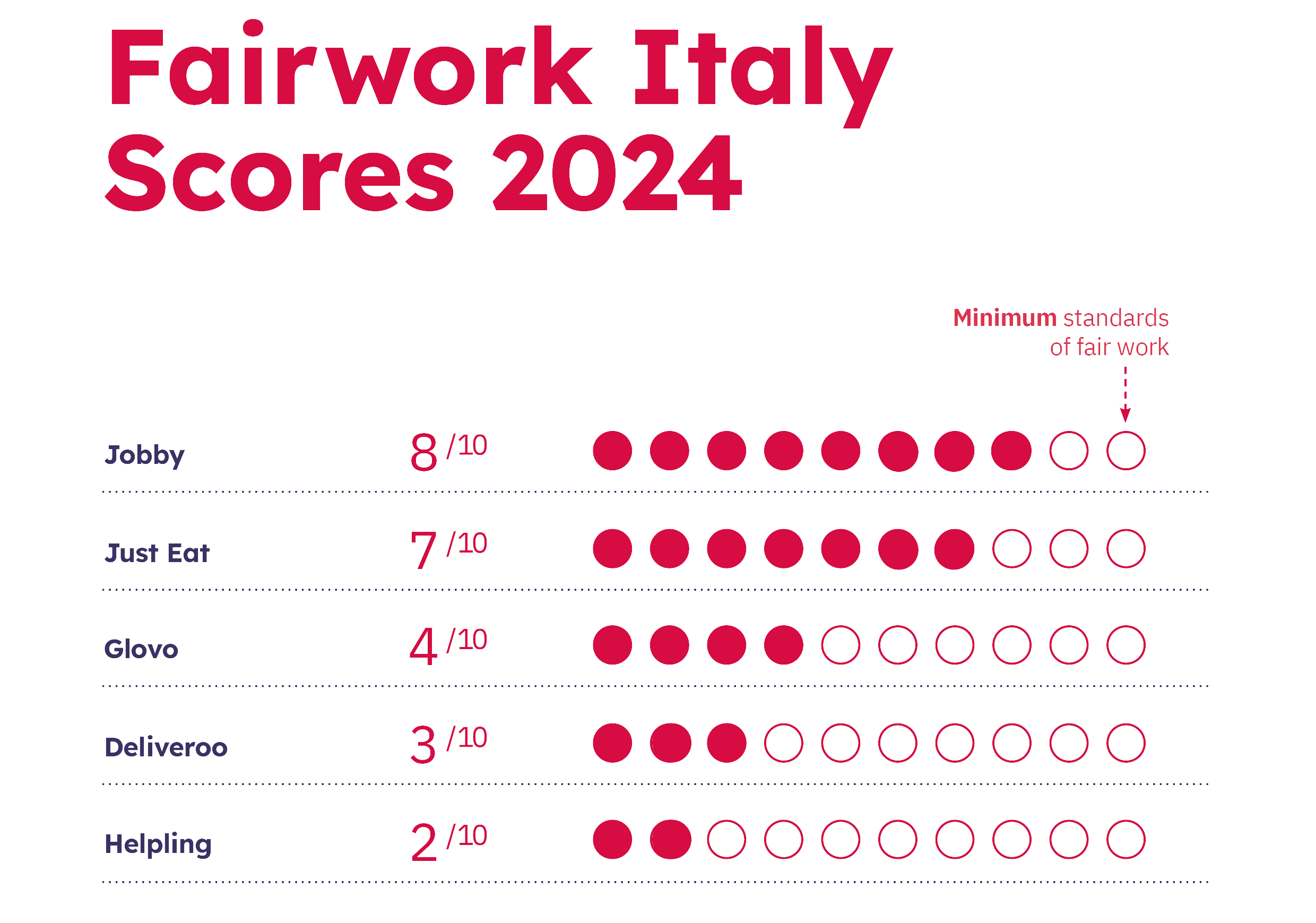This website uses cookies so that we can provide you with the best user experience possible. Cookie information is stored in your browser and performs functions such as recognising you when you return to our website and helping our team to understand which sections of the website you find most interesting and useful.
First Fairwork Italy report finds wide variability in the fairness of work offered by digital platforms

In the first report of its kind in Italy, researchers at Sapienza University of Rome and the University of Oxford have ranked platforms across sectors – including food delivery, domestic services, and odd jobs – and found most unable to evidence a minimum standard of fair work.
Platforms are growing in prevalence in Italy and expanding from longstanding sectors like food delivery into new service areas such as care and assistance work. But despite this diversification, common challenges for platform workers remain: these include low wages, a lack of bargaining power, and undermined autonomy through algorithmic control. This new report offers a broad overview of these issues, providing a useful guide for both institutions and social partners.

Key findings
The report assesses Glovo, Helpling, Deliveroo, Jobby, and Just Eat against five Fairwork principles: fair pay, fair conditions, fair contracts, fair management and fair representation, and finds:
- Fair pay: Only two platforms (Jobby and Just Eat) were able to demonstrate that they guaranteed their workers a wage equal to or higher than the minimum set by the national collective bargaining agreement for the sector.
- Fair conditions: All platforms, except Helpling, were able to prove that they offer protection against risks and accidents at work and that basic accident insurance is available. Deliveroo, Glovo, Jobby and Just Eat provide personal protective equipment free of charge and promptly replace it without charge. Helpling could not demonstrate that it provides an effective safety net (i.e. support for health and safety issues) for workers.
- Fair contracts: All platforms were able to demonstrate that they provide clear, transparent and accessible terms and conditions. Of these, only Just Eat’s terms and conditions have shown that they truly reflect the nature of the relationship between the platform and its workers, due to the presence of a company-wide agreement. This can be considered good practice in the Italian platform economy, as it clearly reflects the nature of the relationship between the platform and its workers.
- Fair management: All of the platforms examined have communication channels that allow workers to interact with a human representative. Just Eat was the only platform to demonstrate an effective process for decisions affecting workers. Glovo and Just Eat provided evidence of fair practices in the management process, including algorithmic management, although it is unclear how algorithms are used to determine access to work. Jobby is the only platform that has demonstrated a transparent and effective anti-discrimination policy.
- Fair representation: Only Just Eat fully met both thresholds for this principle. Deliveroo and Glovo signed a collective agreement only recognised by an unrepresentative trade union in Italy.
Pledge
As part of Fairwork’s commitment to holding platforms accountable for their labour practices, the project has launched the Fairwork Pledge. The pledge aims to encourage other organisations, such as universities, companies and investors, to announce their public support for decent working conditions in the platform economy, guided by the five principles of Fairwork.
Professor Mark Graham, Professor of Internet Geography at Oxford Internet Institute and Director of Fairwork, said:
“The low scores of many popular platforms in the Fairwork Spain league table clearly demonstrate the need for regulatory intervention to ensure gig workers are no longer falling through the cracks, further exacerbated through the pandemic. As part of our vision for a fairer future of work, we’re setting out a pathway to realise that ambition through the launch of the Fairwork Pledge. We urge organisations and investors to sign up to the pledge today and help our vision of fair work become a reality for all platform workers.”
